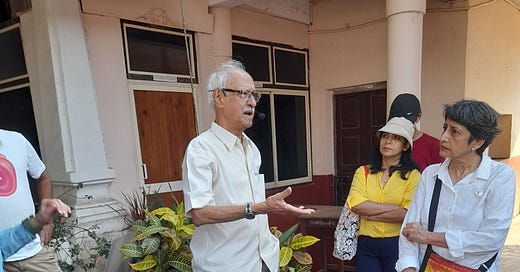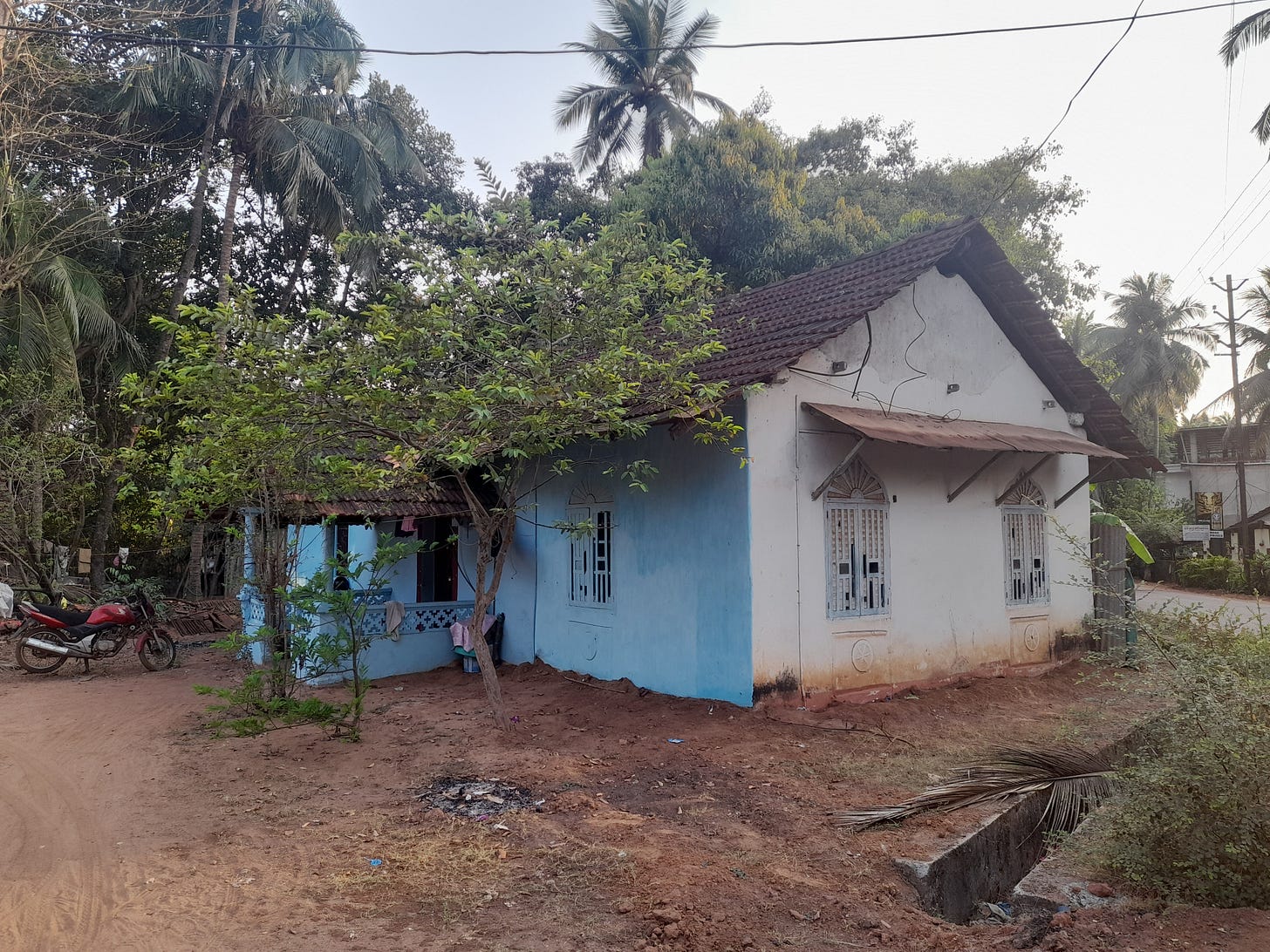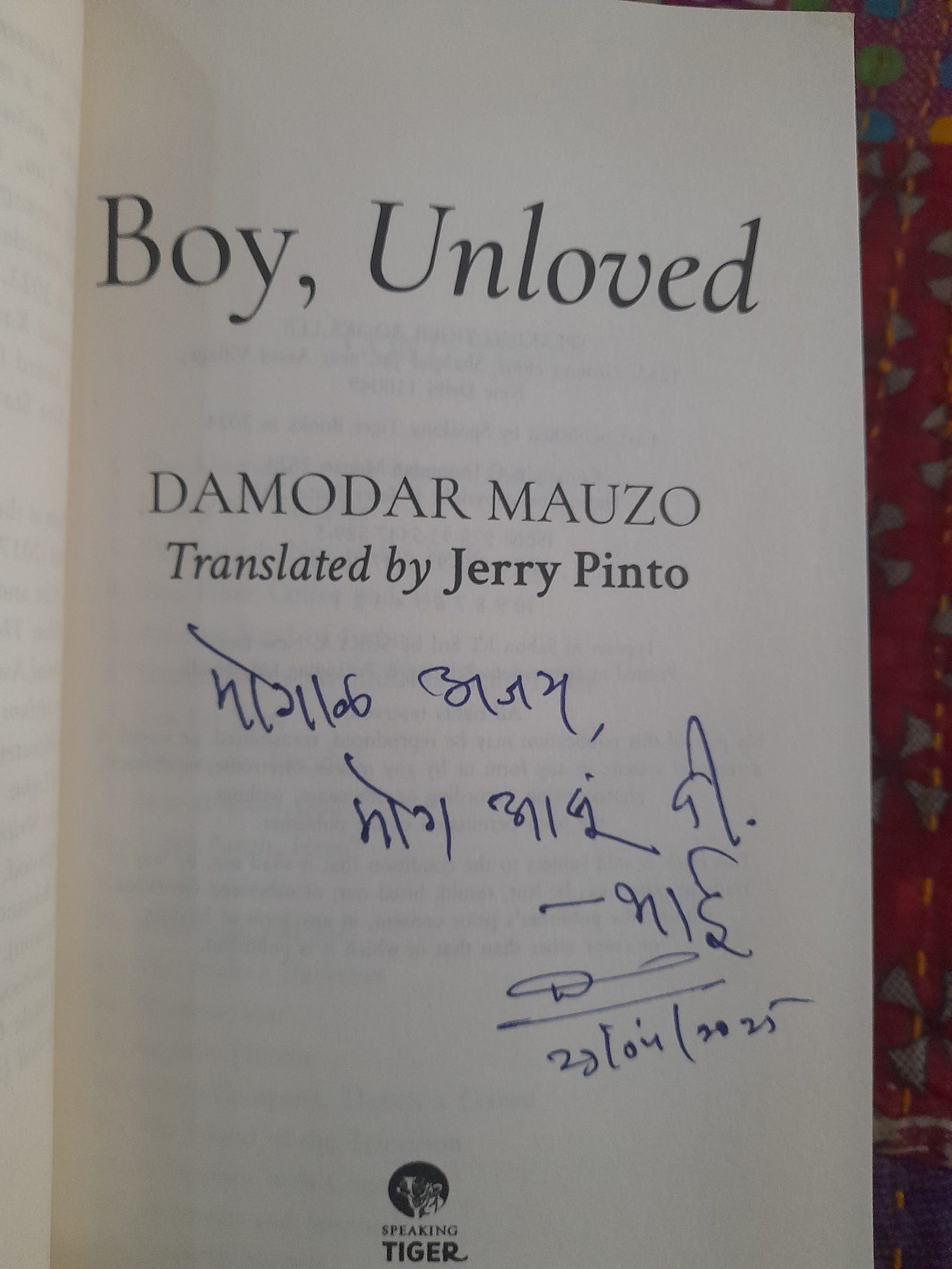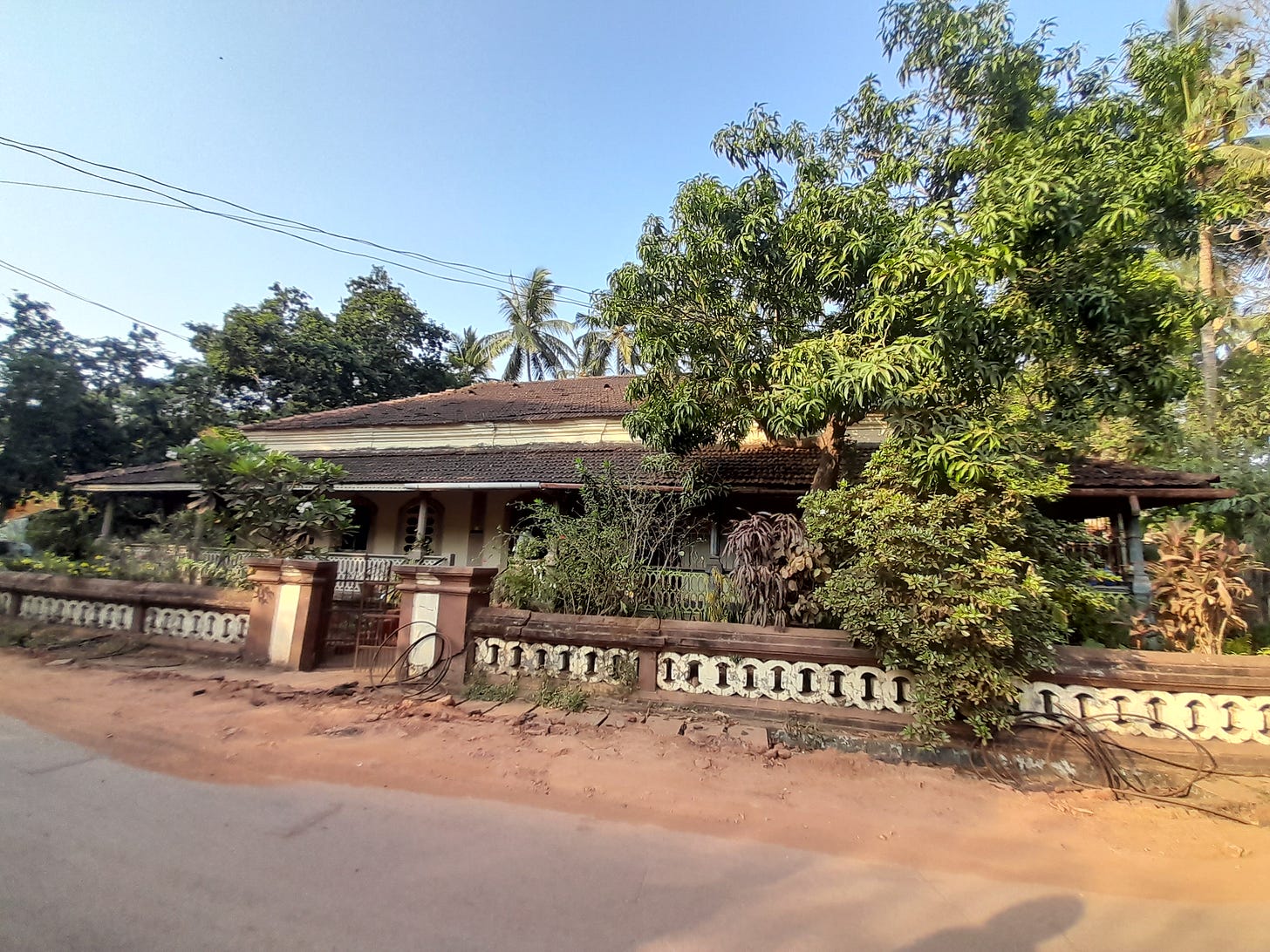Saligao Summer: A walk with Bhai Damodar Mauzo
The acclaimed writer took us on a curated walk through his village and shared his childhood and adult memories with us.
On Sunday afternoon, I made the repeat trip to southern Goa; this time to Majorda for a walk curated by the great writer Damodar Mauzo, or Bhai as those who know and admired his work call him. (The walk was organised by Heritage First Goa)
The 80-year old, whose short stories show us the lives of ordinary Goans was awarded India’s highest literary honour- the Jnanpith in 2023.
I had first met him at the Liberty and Light Festival of Goa in 2022 and was absolutely awed by his warm and incredibly humble persona. There are some people in this world through whom a certain kind of light shines from within.
I also had the privilege of working with Bhai for the 2023 edition of The Peacock, the official daily of the International Film Festival of India. We’d met last during a day-long festival of Goa in Bombay a few months ago.
So, when I heard of the opportunity to spend a summer evening with Bhai, I grabbed the opportunity with both hands.
We met Bhai outside the Mae de Deus or Mother of God church in Majorda, which is very close to the railway line. I had crossed this very spot in a train countless times but never noticed it and thought I’d be in this village as a guest. He shared some of his childhood anecdotes concerning the church and his friends who were parishioners. Born into a Hindu Brahmin family, Bhai grew up with Catholic friends and this is one reason that his books mainly have Catholic characters.
A railway line always ran through his village- the West of India Portuguese Railway, which was built by the British in 1888. When the Konkan Railway was constructed in the 1990s, Bhai had some genuine concerns about the design of a bridge in Majorda. Unfortunately his objections were ignored and the result was flooding in the village every monsoon, because a lake’s natural outlet to the River Sal was blocked!
When Bhai narrated this incident, I thought of Nobel laureate Toni Morrison’s words:
“You know, they straightened out the Mississippi River in places, to make room for houses and livable acreage. Occasionally the river floods these places. ‘Floods’ is the word they use, but in fact it is not flooding; it is remembering. Remembering where it used to be. All water has a perfect memory and is forever trying to get back to where it was. Writers are like that: remembering where we were, that valley we ran through, what the banks were like, the light that was there and the route back to our original place. It is emotional memory--what the nerves and the skin remember as well as how it appeared. And a rush of imagination is our ‘flooding.’”
When the Konkan Railway, which connects Maharashtra with Goa, Karnataka and Kerala, was opened, it was hailed as an engineering marvel. Readers of this newsletter know that a particular train is my preferred way of going to Calicut from Bombay. Each time I took the LTT-Ernakulam Duronto Express and admired the scenery of India’s west coast, I never thought of the environmental damage that the construction of this line caused. I stand by the fact that the line was a necessity, but obviously a greater amount of attention should have been paid to minimise environmental damage.
The stories of the landscapes and people that one could see from the trains are all there in Bhai’s books.
Walking through the idyllic and beautiful village of Majorda, we stopped by at the Godinho Bakery, where I got a chance to see the oven where the delicious breads this state is famous for are baked. Mr. Williams, whose father ran the bakery at one time, was kind enough to let us in. We also had some freshly baked pao with a touch of cardamom!
This quiet south Goa village with its mix of well-maintained traditional houses and some rather flashy new ones is an ideal place for a writer seeking inspiration. What was more inspiring for me was listening to Bhai share his memories.
The big surprise of our walk was a visit to the house of the great composer the late Anthony Gonsalves. The man who was popularised as one of the main characters in the Hindi film ‘Amar Akbar Anthony’ passed away in 2012. His gorgeous house is maintained well by his daughter the social activist Laxmi. The compound has many rescued dogs, who bark but don’t bite.
After tea and snacks in another bakery, we went to Bhai’s house, where he autographed books for us. I was honestly touched with his hospitality and warmth.
At the Liberty and Light Festival when we congratulated him for being awarded India’s highest literary honour, Bhai was gracious in accepting congratulations and compliments, but spoke of how he wanted to prioritise his time by writing and that nothing gave him greater joy than that. The implication was that the award came with too many demands for his presence at functions and the likes.
This walk has been the highlight of my summer and I look forward to rereading his short stories, as well as his 1983 novel Karmelin.
Given the state of inter-religious relations in the country at the moment, we have two choices:
To feel nostalgic about the time when films like ‘Amar Akbar Anthony’ could be made and celebrate movies that had a Hindu, Muslim and Christian as the protagonists, while being upset about where we are now as a nation.
or
To fight communalism, bigotry and hate, in our own (small or big) ways, and tear down the walls being built by the powerful.
I definitely chose the second. My India is one where we celebrate and treasure our diversity. We will get there, even if takes us more time than we’d like.











Lucky you! I am impressed that one can go for a walk with a living legend like him in Goa. What a lovely place and culture.
Ah! The Site of Memory! Water, memory, and time …